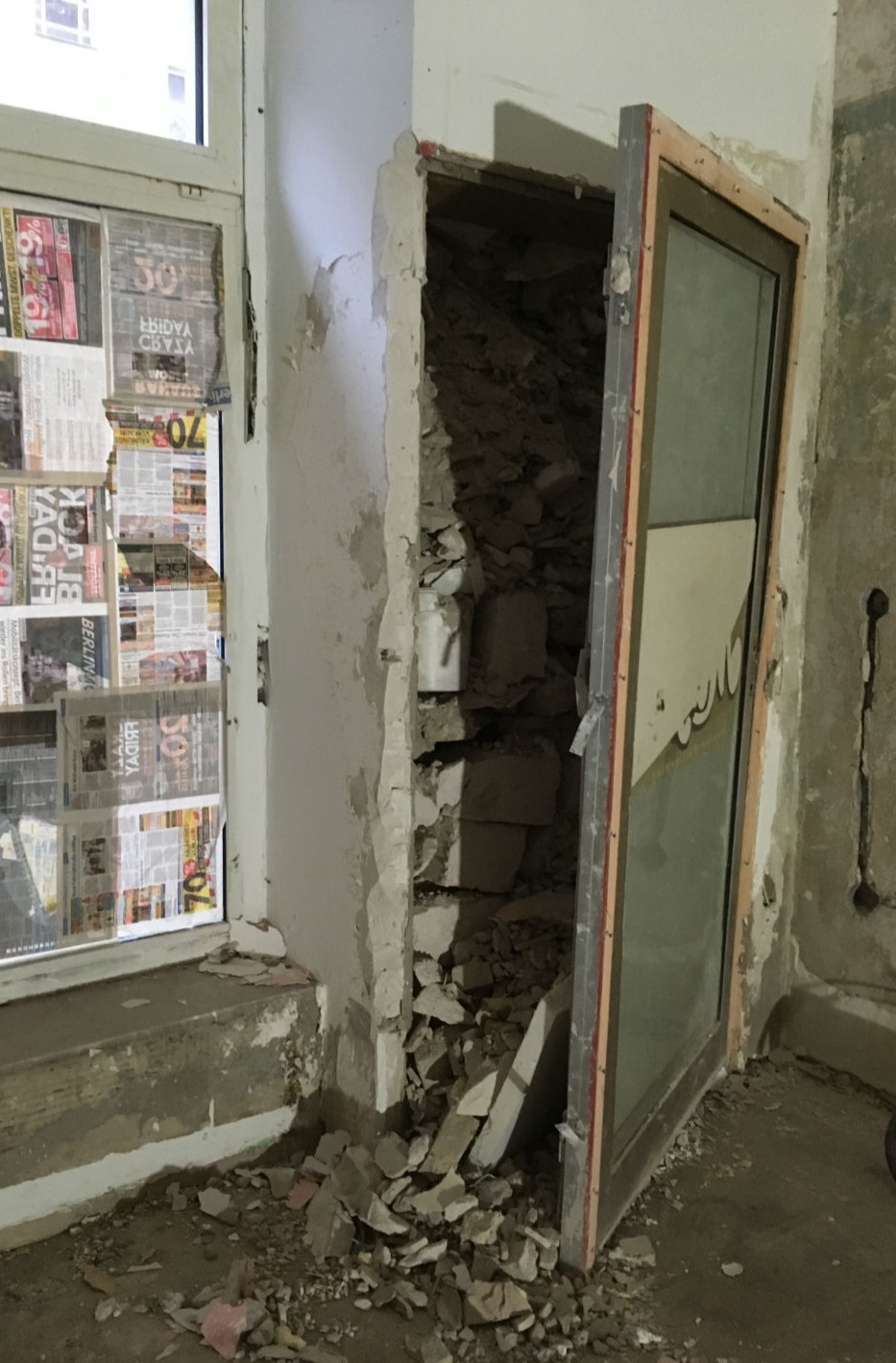





zeigt // presents
a casual corridor ist eine monatlich wechselnde Ausstellungsreihe in unserer Vitrine im Außenbereich von WIRWIR.
//
a casual corridor is an outdoor vitrine exhibition space at WIRWIR with a monthly changing show.

The project space is located in former shop premises in Berlin-Neukölln. The name WIRWIR, connects to the history of the 49m² space. Amongst its many iterations of use, it was once a brothel catering specifically to a Turkish clientele. The word vır vır means brothel in Turkish street slang and by changing a few letters, but not the pronunciation, the name WIRWIR, meaning we we, was born.
WIRWIR is part of DÉRIVE UG - which is an umbrella organization that has hosted a wide variety of projects over the years such as; SONNTAG, PICTURE BERLIN, DETLEF, and IN SEARCH OF THE MIRACULOUS. The concept of WIRWIR was and continues to be developed by Adrian Schiesser and April Gertler. Over the years they have recognised a need to experiment with varying formats for artistic presentation and creation and in doing so, create multiple access points. Those formats have included collaborative artist walks, a parade/demonstration, an art bar, lecture/baking performances, and exhibitions in other people's homes.
WIRWIR hosts ongoing projects, and will also develop new projects along the way which will continue to shift formats by offering varying platforms for art works and artists.
Have a listen to April and Adrian talk about WIRWIR for ART NEXT DOOR - a podcast by Tuce Erel.
Back in 2015, Adrian and April met the Austrian artist Uli Aigner. They invited her to participate in SONNTAG in 2016. She showed the first 250 vessels from her (then) new project EINE MILLION. The premise of the project was to make one million ceramic vessels for the rest of her life.
We were thrilled to work with her and she was equally happy to have a chance to show the new project in Berlin for the first time.
Since then, conversations, collaborations, apple strudels and much more have been shared. After telling Uli about WIRWIR she offered to lend WIRWIR her project TERRITORIAL CLAIM for a longer period of time.
TERRITORIAL CLAIM is a project within EINE MILLION created in 2016 - it includes 206 vessels of all shapes and sizes. Every vessel has a country written on it and every country is a member state of the United Nations. Uli's TERRITORIAL CLAIM is a collaborating vessel and has already found its way
into many projects taking place at WIRWIR.
It is with incredible thanks to Uli Aigner and Michal Kosakowski for entrusting WIRWIR with this amazing work.
Stuttgarter Str. 56
12059 Berlin-Neukölln
Germany